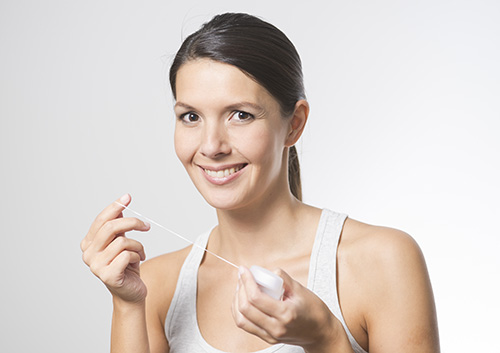
If you’ve been following a vegetarian or vegan diet, you know that there’s much more to living a healthy life than simply avoiding meat products. Making sure your diet includes enough protein, as well as any nutrients that are primarily available in animal products, takes planning, and there’s no one-menu-fits-all solution.
Why? Because there’s no one menu that will suit all vegetarians. Specific vegetarian diets can allow for many different options:
- Vegan—a plant-based diet which excludes meat, fish, dairy, and egg products
- Ovo-vegetarian—includes eggs as a dietary option, but no dairy
- Lacto-vegetarian— includes dairy as a dietary option, but no eggs
- Lacto-ovo-vegetarian—a meat-free diet which allows both dairy products and eggs
If you are a pescatarian, who eats fish on occasion, or a flexitarian, who sometimes includes meat in a meal, your menu options are even broader.
So let’s look at the big picture—a healthy vegetarian diet is really more concerned with the foods you do eat for nutrition rather than the foods you don’t. You can create a meal plan rich in all your essential nutrients with a little research, no matter which type of vegetarian diet is your go-to choice.
And while you’re constructing your ideal menu guidelines, don’t forget about your dental nutrition!
In terms of keeping your teeth and gums their healthiest, what important vitamins and minerals are often missing from vegetarian and vegan diets? Let’s look at three of them.
Calcium is essential for maintaining strong bones and tooth enamel. Without enough calcium, a weakened jawbone leads to loose, and even lost, teeth. The acids in our food and the acids created by oral bacteria also weaken the minerals in enamel, including calcium. These weak spots can eventually become cavities. A diet rich in calcium not only supports the bones holding our teeth, but can even help repair, or remineralize, enamel which has been weakened by acidic erosion.
For vegetarians who include dairy in their diets, dairy products are a great way to include calcium. Milk, cheese, and yogurt are traditional and rich sources of this mineral.
For vegans, it’s a bit more challenging, but still doable! Non-dairy foods providing calcium include dark green vegetables (kale, broccoli, spinach), certain types of tofu, and fortified cereals, juices, and non-dairy milks.
Now you’re ready to put that calcium to work by making sure you have enough vitamin D in your diet. Vitamin D not only helps keep our bones healthy, it also enables our bodies to absorb calcium. Bonus—it’s been linked to better gum health in several studies.
So how to get more vitamin D? If you eat dairy, most dairy products have been fortified with vitamin D. If eggs are a part of your diet, egg yolks are a great source. Pescatarians can enjoy the benefits of vitamin D from fatty fish such as tuna and salmon.
Because we get most of our vitamin D from sun exposure or foods derived from animals, plant-based foods are not a practical way to obtain the vitamin D you need. But, just as non-vegetarians can get plentiful vitamin D from fortified dairy products, vegans also have options. Try adding cereals, juices, and non-dairy milks fortified with this essential nutrient to your diet, or take a vegan vitamin D supplement.
Vitamin B12 is essential for healthy red blood cells, nerve cell development, brain function, and DNA production. (This is why it’s especially important for pregnant and nursing women.) Vitamin B12 can also impact your oral health. A B12 deficiency can cause a swollen, sore, or inflamed tongue, loss of taste, and gum, tongue, and mouth ulcers.
Unfortunately, vitamin B12 is reliably found only in animal foods and nutritional yeasts. If you would prefer an egg-free and dairy-free diet, look to B12 supplements or B12-fortified cereals, plant-based milks, energy bars, and other vegan options. This is a good subject to discuss with your physician, because even supplements and fortified foods might not provide enough B12.
In fact, Dr. Welmilya Francis-Davis can be vital resources when you’re planning your healthiest vegetarian diet. The next time you visit our Nassau office, ask for recommendations for supplements if you’re concerned that diet alone can’t provide for all of your nutrition essentials. Finally, care should be taken to ensure that, even with supplements, you get the proper amount of the vitamins and minerals you need.
As a vegetarian, you are used to the concept of care. Whether it was concern for nutrition, the planet, the animal world, or another reason that drew you to a vegetarian diet, be sure to care for your body as well as your dietary choices. Careful planning can ensure a diet which supports not only your general health, but your oral health, for a lifetime of nourishing—and well-nourished—smiles.






